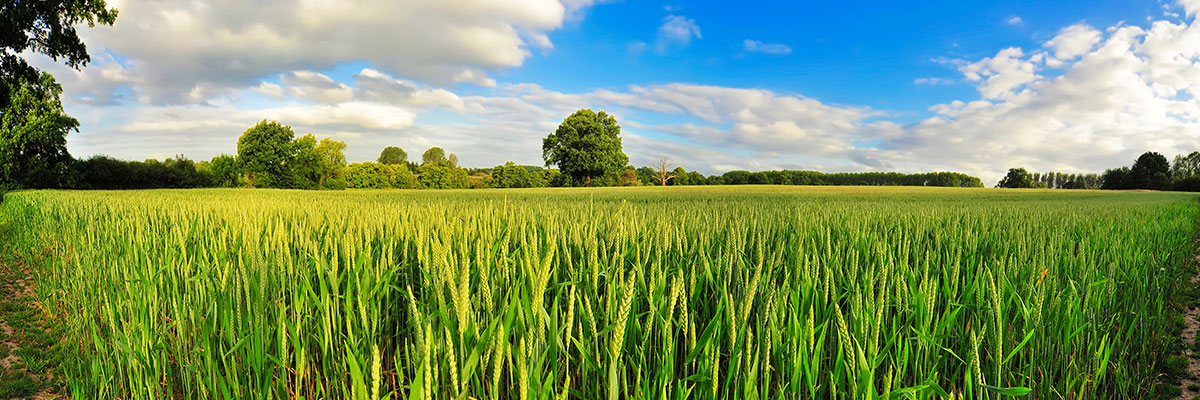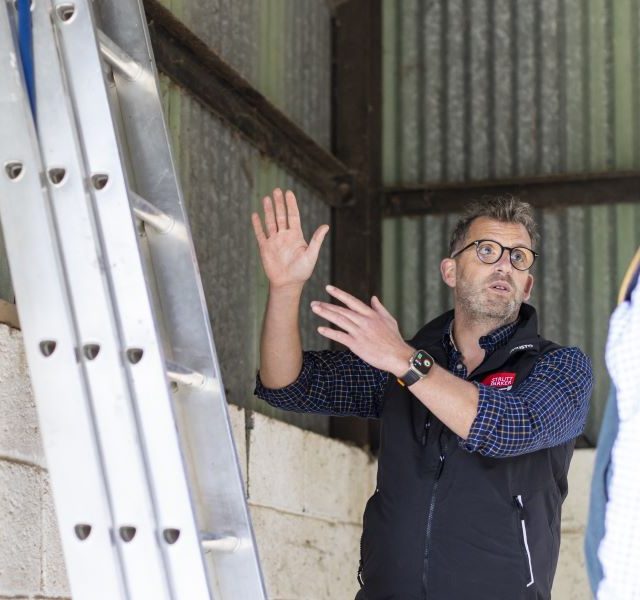Land Business Update | Week Commencing 13th May 2024
Farming
Profits halve for 2024 and recover in 2025 in our Arable profitability outlook
Our revised harvest 2024 and 2025 arable profitability forecasts show the financial impact of six months of exceptionally wet weather, changes in commodity prices and falling Basic Payments on combinable crop growers. Our forecast net margin – which is the equivalent of profit before rent and finance – for an average-performing combinable crops business for harvest 2024 has fallen to £80/ha. Although variable costs have fallen, income from crop sales is forecast to be down on 2023 levels, due to expected lower yields. Margins are also expected to have fallen for higher-performing combinable crops businesses (at £271/ha) but by a smaller amount. Assuming that crop rotations and yields return to more normal levels for harvest 2025, then the net margin is forecast to rise to £214/ha for an average-performing farm and £449/ha for a higher-performing farm. Click here for the full results and please contact Jonty Armitage or Tom Coate if you would like to discuss farm profitability.
The opportunity of alternative proteins in Europe
This thought-provoking new report from the Green Alliance says that there is not enough land in Europe to continue current patterns of food consumption, as well as meet nature and climate targets. This is exacerbated by politicians – from most countries – not being willing to debate changes in diets, and particularly meat and dairy. The report discusses the role of alternative proteins in reducing demand for land by reducing demand for some types of meat (mainly the processed meats such as mince and some cheeses). Alternative protein means planted-based meats, fermented foods (think Quorn and Impossible burgers) and ‘cultivated’ meats (produced using animal cells). The report is based on three scenarios of how the alternative protein sector could grow. In the low growth scenario, a sixth of meat and dairy is displaced by alternative proteins; this would potentially release 21% of farmed area for alternative uses (and 9% of land overseas that produces food that we import). In the intermediate scenario, where the precision fermentation and plant-based protein market grow but cultivated meat remains too expensive, almost 40% of land is available for other uses. The report makes the persuasive case that releasing land from meat production in the UK (and overseas) will increase food security, as some of our land could be used to grow food that is currently imported from areas at even higher risk of climate change.
New agricultural pollution team to inspect Welsh farms
The team of 16 environment officers employed by Natural Resources Wales will carry out inspections at farms identified as high risk of pollution. NRW says it will act in a proportionate manner – depending on the situation – and help land managers meet the Control of Agricultural Pollution Regulations through advice and guidance before penalties. Around 800 farms will be inspected each year.
Environment
Government failure will result in England missing water quality targets by ‘considerable amount’
Another report – in a growing series – has criticised the government’s performance and commitment to improving the environment. The Office for Environmental Protection has said that most of the pollution in England’s waterways could be addressed through the existing water framework directive. So this is another example of the need for proper implementation and enforcement of policies, rather than a need for new regulation. The OEP said Defra and the Environment Agency had both failed to apply the law and needed to set out how they would apply it in a much more effective way. More than 80% of watercourses are in not in ‘good ecological condition’ or on track to meet it.
UK government loses second legal challenge in two years due to lack of evidence in its net zero plans
Under the Climate Change Act, the government is required to set out policies that show how it will meet the five-yearly carbon budgets that set out the pathway to achieve our target of net zero by 2050. In the two plans for 2028 to 2037, the government’s own analysis stated that it has low or very low confidence that the policies designed to deliver about half of the emissions cuts will actually deliver them. Three environmental groups argued that the government acted illegally when it signed off the two plans, as it knew about the low confidence in delivery and had no contingency plans. The High Court has ordered the government to amend its climate strategy within 12 months and to pay the costs of two of the environmental groups. The government had previously been warned that the plans were not sufficient by the Climate Change Committee, its own climate adviser.
VAT treatment of voluntary carbon credits
HMRC has said that voluntary carbon credits will now be subject to VAT where a business sells them (or includes them in their ‘onward supplies’ in HMRC language). The following are still outside the scope of VAT: first issue of the credit by a public authority; holding them as an investment, where there is no economic activity; sales of credits from self-assessed projects with no independent or third-party verification.
Report Yellow-Legged Asian Hornets sightings
The British Beekeepers Association has asked the public to use the official Asian Hornet Watch app to report any sightings, which will then be investigated by the government’s National Bee Unit. Asian Hornets could decimate pollinators, including honeybees. They are spreading from South East England and there has now been a credible sighting in Lancashire.
Property and rural economy
Wildfire risks in the UK
This useful briefing note includes advice on how to increase the resilience of different types of land use, including farmland, heathland, woodlands and moorlands. The Met Office predicts that the number of summer days with dangerous weather conditions for fire development will increase two-fold under 2°C of global warming and by five-fold under 4°C.
Average home insurance premium increased 19% in the year to March 2024
The Association of British Insurers says that one reason for the rise is that 2023 had a record level of weather-related claims (£573m). The ABI called on the government to maintain investment in flood defences and maintenance at least £1bn a year to keep pace with climate change. It also highlighted that the government increased Insurance Premium Tax in 2016 and earmarked some of the increased revenue for flood defences but it is unlikely that it is being used for that purpose. The ABI also identified reform of planning laws to prevent home building on high flood risk areas and a greater focus on climate-resilient properties.
Large-scale hydrogen trial for household heating dropped – heat pumps are preferred technology
The government has decided not to continue with the trial and a minister in the energy department has said that heat pumps and heat networks will be the main route to cutting household emissions for the foreseeable future. Two smaller trials were abandoned last year due to lack of the gas and local opposition. The National Infrastructure Commission has also urged the government to rule out hydrogen and focus on heat pumps. One trial is still expected to go ahead in Scotland but it has been delayed until 2025. Household heating is a major source of emissions with domestic boilers accounting for @ 14% of the UK’s emissions.






